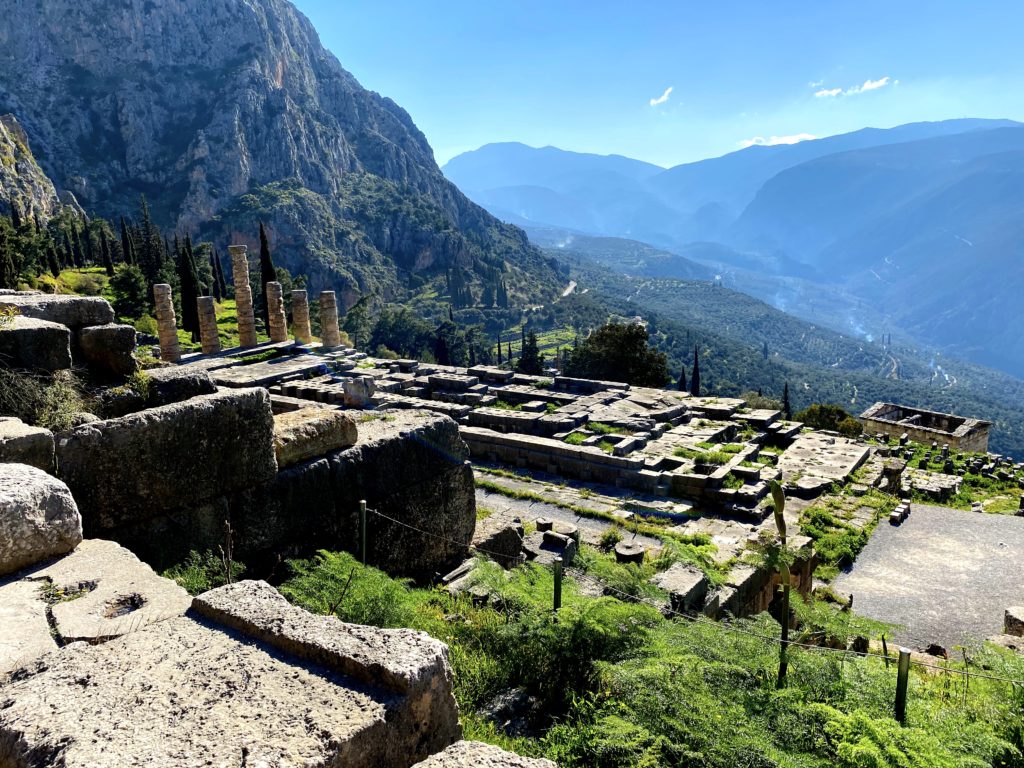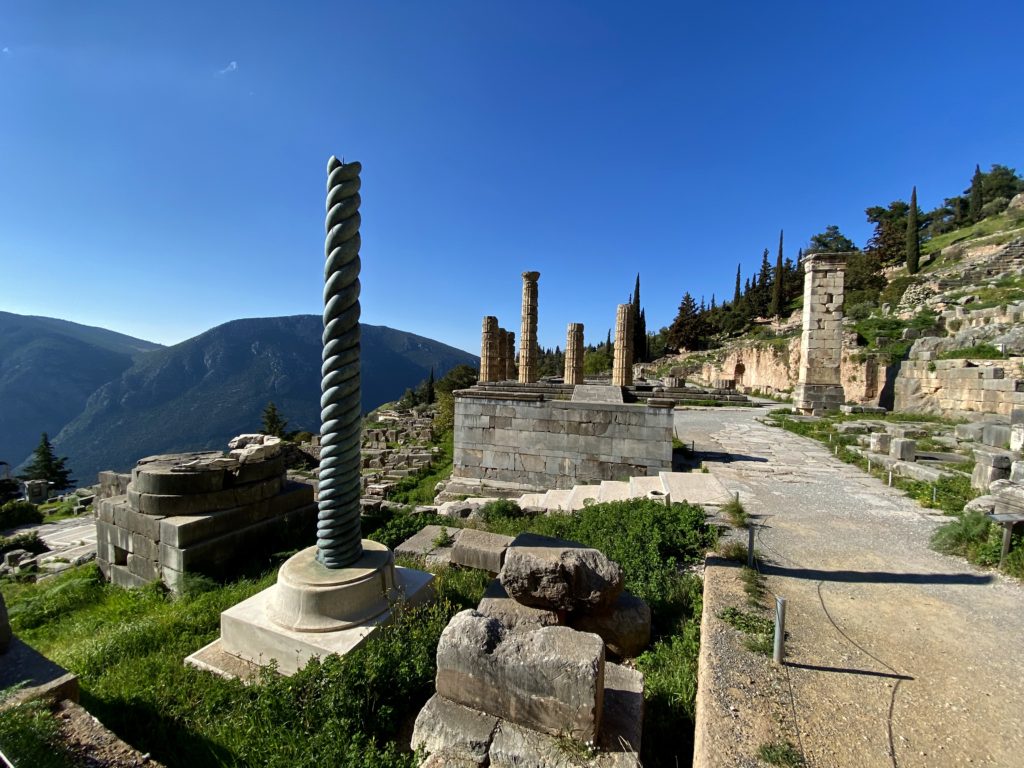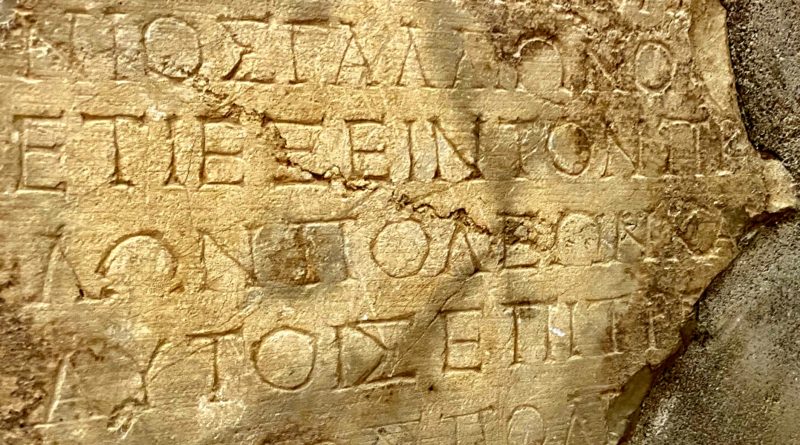Gallio Inscription / Delphi Archaeological Museum
Letter from Emperor Claudius to the proconsul of Achaia (Gallio)
Delphi, formerly also called Pytho was the place which was considered as the centre of the world by the ancient Greeks. Located in upper central Greece, on the south-western slope of Mount Parnassus, Delphi was known for the famous Sanctuary of Apollo (god of light, knowledge, music and harmony) and best known for its oracle. Delphi was also a place of worship for Gaia, the mother goddess connected with fertility. In myths of Ancient Greece, Zeus determined the site of Delphi when he sought to find the centre of his Grandmother Earth (Gaia). He sent two eagles flying from the eastern and western extremities, and the path of the eagles crossed over Delphi where the omphalos or navel of Gaia was found. (see the article: Dancers of Delphi)

According the traditions, Pythia or the Delphic oracle was already here. The place served as the major site during classical times for the worship of the god Apollo.
Apollo was said to have slain Python (a serpent or a dragon) who lived there and protected the center of the Earth.
Some traditions relate the name Pytho with Pythia, the priestess serving as the oracle, was chosen from their ranks by a group of priestesses who administered the temple.

At the Roman time the site was sacked by Sulla in 86 BC, during the Mithridatic Wars. And also Nero destroyed Delphi in 66 AD. Although subsequent Roman emperors contributed towards to the restoration of the site, it gradually lost importance. Later on the Imperial cults became more popular than traditional Greek sacred sites.
Letter from Emperor Claudius to the proconsul of Achaia (Gallio)

In the letter, Emperor Claudius demonstrates his interest in the city of Delphi (which had a shortage of citizens at the time) by giving directions about how new inhabitants might be attracted from other cities.
This letter is also important on account of its reference to Lucius Junius Gallio, the brother of Seneca, who was proconsul of Achaia at the time of the Apostle Paul’s stay in Corinth. (Acts 18:12-17)

Also called Gallio Inscription,
The emperor describes the sad situation in Delphi in the first century, when there were no more citizens living in the city. Claudius writes of receiving advice on the subject from a proconsul named Gallio, the Roman senator who dismissed the charge brought by the Jews against Paul in Acts.
The inscription serves as an important archaeological marker in reconstructing the chronology of Paul’s life.
Very few parts of the inscription were preserved.
The translation of the compete inscription is as below:
Tiberius Claudius Caesar Augustus Germanicus, Highest Priest invested with tribunician authority For the 12th time, acclaimed Imperator for the 26th time, Father of the Fatherland. Consul for the 5th time, Censor, sends greetings to the city of the Delphians For a long time have I been well-disposed toward the city of Delphi, but also solicitous for its prosperity, and I have always protected the cult of the Pythian Apollo But now since it is said to be destitute of citizens, as L. Junius Gallio, my friend and proconsul, recently reported to me, and being desirous that Delphi should continue to retain intact its former rank, I order you to invite well-born people also from other cities to Delphi as new inhabitants and to allow them and their children to have all the privileges of Delphi as being citizens on equal and like. For if some were to transfer as citizens to these regions…


